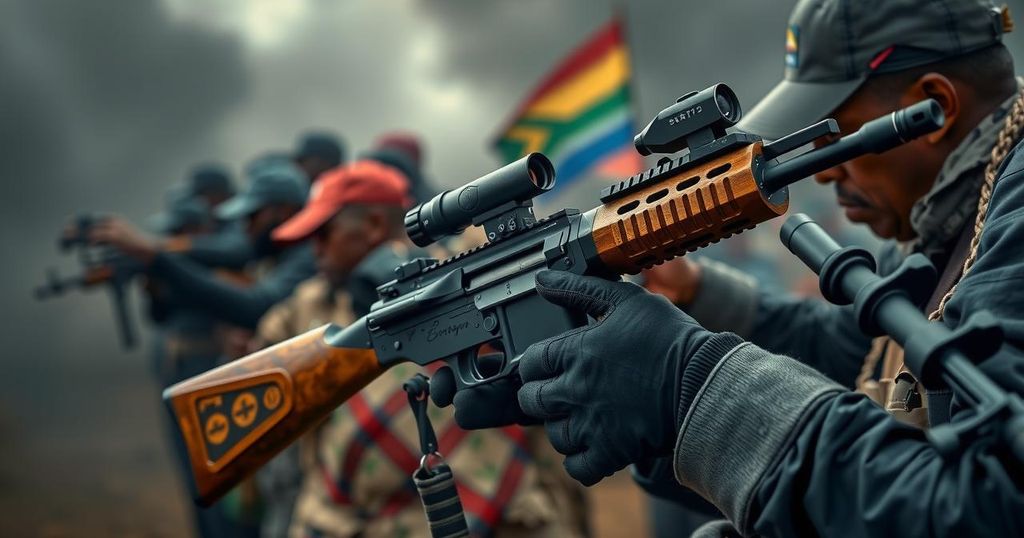Amnesty International disclosed that UAE-manufactured armoured vehicles, integrated with French military technology, are being used by the Sudanese Rapid Support Forces (RSF), raising concerns about breaches of the UN arms embargo. Amidst the ongoing civil war, which has resulted in serious human rights abuses and mass displacement, calls for cessation of arms supplies to conflicting parties have intensified, particularly following the UN’s emphasis on the need for compliance with international regulations.
A recent report by Amnesty International has revealed that the Sudanese Rapid Support Forces (RSF) are utilizing armoured carriers manufactured by the United Arab Emirates (UAE), which incorporate French military technology during the ongoing civil conflict in Sudan. This raises significant concerns regarding a potential violation of the United Nations (UN) arms embargo on Darfur. The report emphasizes the urgent need for countries to halt the supply of weapons to the conflicting factions within Sudan, emphasizing the dire humanitarian consequences. The armoured vehicles in question, produced by the UAE’s Edge Group, are equipped with the French Galix reactive defence system, designed for threat protection. Following the capture and destruction of these vehicles by the Sudanese army, the implications of their use by the RSF during clashes with the Sudanese Armed Forces (SAF) have been scrutinized, highlighting the complexity of the arms trade regulation and enforcement. The armed conflict in Sudan, which began in April 2023, has resulted in extensive casualties and humanitarian crises, with over 20,000 lives lost and nearly 12 million individuals displaced. Reports of serious human rights violations, including ethnic cleansing and sexual violence, have surfaced amidst the violent struggles fueled by advanced weaponry. As the situation evolves, international figures, including UN Under-Secretary-General Rosemary DiCarlo, have reiterated their calls for external nations to halt arms transfers, warning of the repercussions such actions can have on peacekeeping efforts in the region. The situation in Sudan serves as a stark reminder of the essential role that strict adherence to international arms regulations plays in supporting human rights and peace initiatives.
In light of Sudan’s history of armed conflict, particularly involving militant groups such as the Rapid Support Forces (RSF), the UN established an arms embargo to mitigate the flow of weaponry into the region. The recent findings by Amnesty International underscore the implications of this embargo when violations occur, as evidenced by the use of UAE-manufactured armoured vehicles equipped with advanced military systems. With the ongoing civil war leading to severe human suffering, the global community faces increasing pressure to ensure compliance with international arms control measures as a means of protecting human rights and fostering stability in affected areas.
Amnesty International’s findings concerning the deployment of UAE-manufactured armoured vehicles by the RSF highlight significant challenges associated with enforcing international arms embargoes. With the civil strife in Sudan claiming thousands of lives and triggering a humanitarian crisis, there is a pressing need for the international community to take decisive actions against arms suppliers. The call from Amnesty International for the cessation of weapon supplies to the conflict zones underscores the importance of stringent arms regulation to support peace efforts and protect vulnerable populations.
Original Source: www.jurist.org






